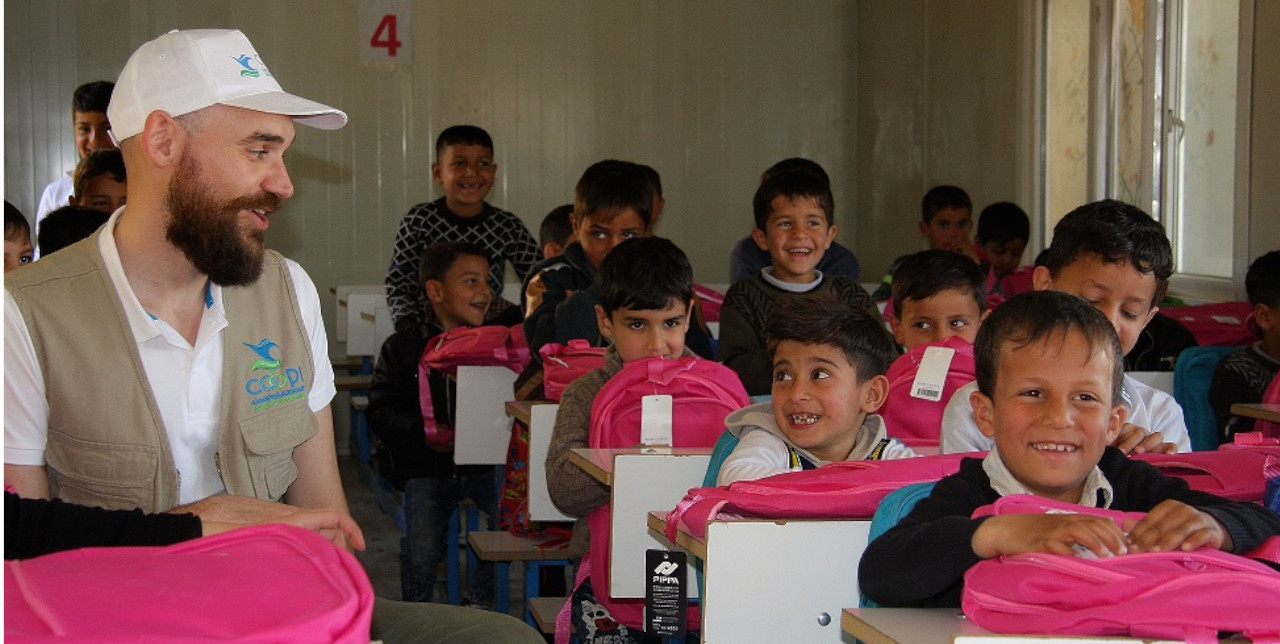18-11-2019 | di COOPI
Mosul. The education in emergency project continues
"Since the outbreak of the conflict, students have shown high levels of stress due to the lack of safe spaces where they could improve their learning process, cultivate their passions and carry out recreational activities. The lack of these infrastructures resulted in more aggressive behaviours shown especially by the most vulnerable students".
These are the words of one of the teachers of the elementary school Second Qayyarah interviewed by COOPI during the feasibility study phase of the project "Back to School with a Flower". The project, which ended in September 2019, aimed to provide students with access to safe, inclusive and quality educational services in the al-Qayyarah district, located south of Mosul.
The project, launched in October 2018, aimed to rehabilitate primary and secondary education infrastructures, especially the most damaged by the recent conflict. The project would also provide child-friendly spaces, in line with international standards regarding safety, inclusiveness and quality of teaching.
Following the positive experience of the Education and Child Protection project completed the previous year in the same district, COOPI renewed its collaboration with the school district staff to identify further educational contexts that required both structural interventions and capacity building activities for the teaching staff.
These activities included the extension of educational spaces through the installation of ad hoc structures in 5 schools in the city of al-Qayyarah and in the village of Imam Gharbi and the organization of 5 days of refresher courses and workshops for 53 teachers, focusing on the post-conflict issues, such as stress and anger management, while organising recreational activities and psychosocial support to the most vulnerable children.
In doing so, COOPI also benefited from the support of a child psychologist, who contributed to identify the most vulnerable students in need of individual support.
In addition, 1,900 individual hygiene kits were also distributed.
With the collaboration of the Iraqi non-governmental organisation Afkar, COOPI was able to monitor the impact of the project activities both on the direct beneficiaries and on their families.
By working closely with different educational structures, the project proved to be a success: ten months after the beginning of the programme, students passed the curricular exams with merit. From a psychosocial point of view, COOPI staff and teachers noticed a radical change in the students’ behaviour – by introducing recreational activities and psychological support, many post-conflict related issues were reduced, such as psychological and social stress.
COOPI best practices allow it to continue its collaboration with the school authorities of the district of Mosul and to develop a new project in the sub-district of al-Qayyarah – the initiative will be funded by the Italian Agency for Development Cooperation (AICS) and will end by August 2020.




 Iraq
Iraq